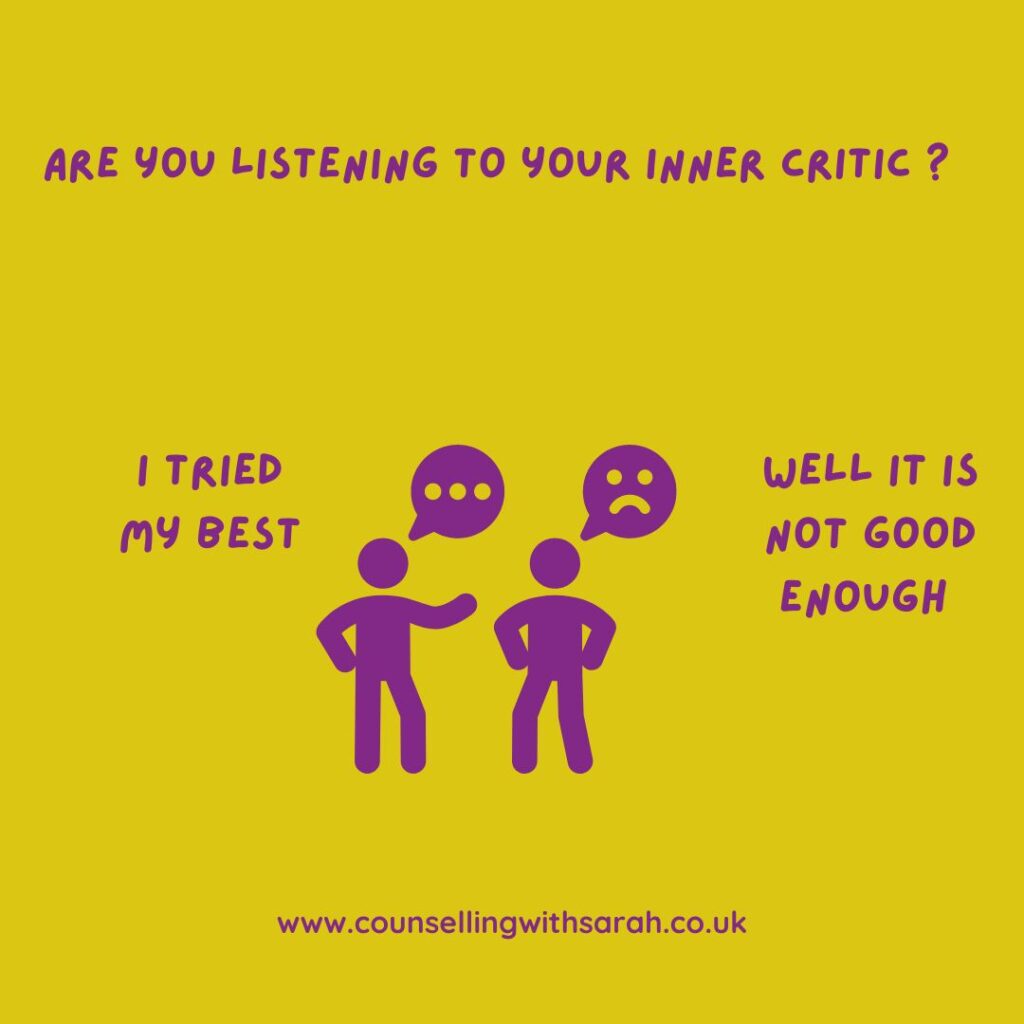
It is positive to have ambition and aims, it helps maintain motivation and momentum. If you are able to find a good work / life balance with positive self-care then it is great you probably don’t need to read any further….. But if you are finding that you are working harder and harder, not getting where you feel you should be then let’s think about whether you have an inner critic and how it might help to start managing it.
The inner critic can be best described as a powerful misplaced voice that loves to show you all the things you have not done. It strives for things to be perfect and makes it hard for things to be ‘good enough’.
The inner critic can be unhelpful in many ways impacting on self-confidence, self-esteem and often leaving it hard to be assertive. An inner critic can lead to thinking others are more important, so it means that all efforts go into pleasing them, often at the expense of our own needs.
An inner critic can tell you all you SHOULD / MUST do and when you don’t or can’t achieve it can lead to feelings of failure and guilt.
Connecting with and understanding your inner critic can be helpful but not normally easy. It is likely to be strongly placed, use to being in charge and a familiar feeling.
How do I know that I have an inner critic ?
It is not always easy to see that your inner critic is in play that is one of its strengths it can disguise itself.
It could be that you procrastinate so much that it is not possible to start something. You could be constantly changing, or redoing things as they are not right or good enough.
The other person is more valuable, they are right, it is hard to say no to people or make the decision of what to do as you fear you will make the wrong choice.
It might be that you are finding you apologise a lot and taking the responsibility for when things go wrong even when you are not responsible.
How can I start to manage my inner critic ?
If you are recognising some of the features of the inner critic perhaps these 3 things may be helpful to consider.
1 – Reframe
“I should” or “I must” can be replaced with “I would like to” or “I do not need to but would like to”.
2 – Yes means no
It can be helpful to remember that every time you are saying “yes” to someone else when you don’t want to it is saying “no” to you and your needs.
3 – Be kind to yourself where you can be
Being able to let go and accept you have done all you can in situations and celebrating what you have done can be great way to start to value yourself.
This has been a snippet of my thoughts around the subject of inner critic. It is something that I work on a lot with my clients and support them to understand and untangle their inner critic. I can offer support to those who would like to see how they can manage things differently lifting those overwhelming feelings of failing, guilt, and stress. This in turn has built up confidence and self-esteem.
Please do get in touch with me through [email protected] to see how we can work together.